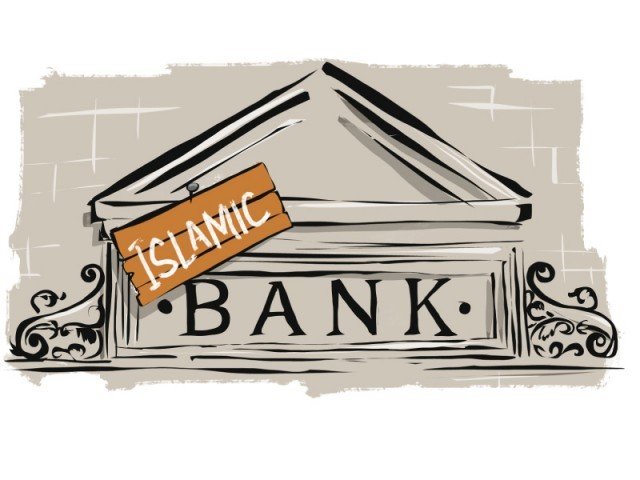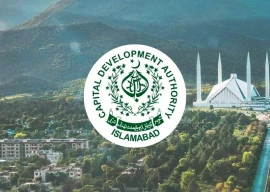
It is not only in Pakistan where they find scepticism. The vast majority of Muslims across the globe remain dubious about the operations of formalised Islamic banks. The main criticism such people lodge against Islamic banking is that it is as exploitative as conventional banking and finance.
Conventional banking is all about borrowing cheap and lending dear, yet Islamic banks also follow the same pattern: offering a return to their investment account holders – not much different from the market rate of interest – and charging very high (albeit market-driven) profits to households and businesses.
In Pakistan, a number of businesses have emerged, which are collecting investments informally from an increasing number of people, and offering them very lucrative and frequent returns. Such businesses are increasing in number and size, and it is interesting to look into this newly-emerging phenomenon. If the underlying business model of such so-called investment companies is strong and robust enough, it should be studied and assessed in order to ascertain the implications for policy development on a national level. If, on the other hand, malpractices are detected, it will be helpful to take some early steps to safeguard the interests of hundreds of people who have already invested in such companies.
Apparently many groups of businessmen, represented and aided mostly by graduates of traditional Islamic schools or madrassas, have quietly been raising a lot of investment from people around the country, especially from the Islamabad and Rawalpindi region, and the areas in the north as far as Gilgit-Baltistan.

They claim to do business in strict conformity with Shariah and offer unbelievably high returns to their investors, which to date has been over 50% per annum or around 5% per month. There are a lot of small groups, mostly led by religious scholars from one prominent school of thought. The most notable of these is the Elixir Group.
The Group’s website offers general information on its business activities and investments, which are reported to be in Pakistan, Malaysia, Thailand, the United Arab Emirates, Sri Lanka, Ethiopia and even in China. While the website does not offer information on the directors and shareholders of the Group, some officials at their Rawalpindi office, who happen to be behind some marble factories in the Westridge area, disclose that a Lalika family is behind the Group. They claim to own big names like Rocco Ice Cream and Prime Dairies, and are planning to start a housing scheme in the name of Sukoon Housing.
Since the Group is neither a regulated entity nor is well-known outside some very specific circles, many people who have come across it are at best confused. On one hand, they are tempted by the very high returns offered to investors; on the other hand, they are nervous and confused, owing to the mystery surrounding the different businesses in which the Group claims to have invested.
Apart from some general information on its website, the Group does not provide any financial information on its activities, as most of the investments received by the Group from the general public are in cash. As the Group claims to have invested in a number of overseas projects, questions arise on the channels it has used for transfer of money from Pakistan. There are many questions related to conducting due diligence, a regulatory requirement for banks and other investment companies when accepting investments from the general public.
There is a definite need to look into the matter with respect to money laundering, even if the investments are genuine, and the returns offered by the Group actually come from the investments made by it in different projects. There are also questions related to corporate governance, as there is no information at all on the so-called founding shareholders and directors of the company.

Although it may sound incredible to see these businesses offering extremely high returns to their investors, it is not impossible for high performing businesses to offer such returns. Despite all the doom and gloom in the country, the Karachi Stock Exchange has performed exceptionally well, with the index going up 48% from January to December 2012. The textile sector provided an unbelievable return of 99% last year. The story for cement is even more impressive, generating a return of 152% in the same period.
One thing that these informal groups claim is perhaps true: putting your money in banks does not generate appropriate returns to investors who are looking for regular income. Their money, however, is safe, given the tight regulations around banking and finance. If a proper corporate governance and regulatory framework, similar to what we have for Mudaraba companies in the country, is devised for these informal Shariah-compliant investment and business groups, one may observe a new way of doing business in compliance with Shariah.
Major contributor
$16.5b was the value of global Takaful premiums estimated in 2011, of which 30% was the contribution of Iran.
Unbelievably high
50% is the return on investment per annum offered by some Shariah-compliant finance corporations.
Rapid expansion
59.6% was the average annual growth rate of deposits at Islamic banks, compared to 16.1% per annum for the conventional banking sector between 2002 and 2011, data from SBP shows.
The writer is an economist and a PhD from Cambridge University.
Published in The Express Tribune, April 22nd, 2013.
Like Business on Facebook to stay informed and join in the conversation.
COMMENTS (10)
Comments are moderated and generally will be posted if they are on-topic and not abusive.
For more information, please see our Comments FAQ

1720097164-0/BeFunky-collage-(9)1720097164-0-165x106.webp)


1734567485-0/Untitled-design-(54)1734567485-0-165x106.webp)





1734576348-0/WhatsApp-Image-2024-12-18-at-3-25-43-PM-(1)1734576348-0-270x192.webp)






do you think Islamic banking is better alternative of conventional banking system
@Ali: Agreed with you. In fact, the title was added by the editors, which makes the piece really out of place. I shall request the editors to change the title.
I regret reading the whole article. Author hasn't concluded the discussion which is complete wastage of readers precious time....!
Hamayun Dar, I have read some of your articles relating to Islamic Finance but in this very article you haven't even addressed the question you raised at the start (title).I am disappointed...Hope you will address this question in your next article!.
What is being given as Islamic Banking is not Islamic at all, Islamic Banking can be started at a small scale at first and then broadened to other fields, but for that a paradigm shift has to take place and that is in our thinking that a person is a custodian of his income and anything that is more than his usage has to be added in the pool which is be be used as a community fund for the betterment of the lives of its constituents.
There is nothing islamic in islamic banking. It's just change of name of "interest" to deceive people.
Islamic or No Islamic No company in the present economic scenario can guarantee return of 50% per annum. This is sheer fraud . Have they explained how hey are going to achieve ( pay ) this return.( if they explain it can be critically examined) AND please do not compare the return in investment in stock Exchange. the increase in the market value of equity is the price( investors willing to pay) based upon their future earnings. their capacity, government policies for the sector, economic scenario for it, concessions available and many other factors. One small incident and the prices go nosedive.. Regulatory monitoring is urgently required mandating them total transparency in their activities including the place & sector where the money so collected has been invested else be prepared for another scam.
Tribune Please properly select articles for publication.
This article says nothing about its title and also does not go into any depth whatsoever about what it is trying to cover.
And what is it trying share ? Whether a personal grudge against Elixir ? Or are we trying to share details of a potential Ponzi scheme or what ?
Please do exhibit bit more quality control over your published material
Thx
So-called Islamic banking is rather more exploitative than conventional banking. Some greedy maulvis passed fatwa in its favor after getting hefty handouts from aspiring investors.
My question after reading the entire article: So IS islamic banking as exploitative as conventional banking?? author u didnt even address this question